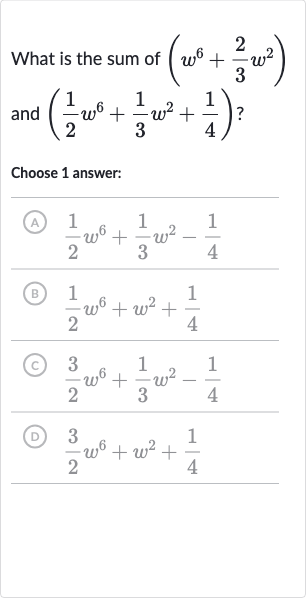Full solution
Q. What is the sum of and ?Choose answer:(A) (B) (C) (D)
- Write expressions to be added: Write down the expressions to be added.We have two expressions:andWe need to add these two expressions together.
- Combine like terms: Combine like terms.To add the expressions, we combine the coefficients of the like terms, which are the terms with the same power of .For terms: For terms: The constant term has no like term in the first expression, so it remains as it is.
- Write final expression: Write the final expression.The sum of the two expressions is:
- Match final expression with choices: Match the final expression with the given choices.The final expression matches with choice (D).
More problems from Compare linear, exponential, and quadratic growth
QuestionGet tutor help
QuestionGet tutor help
QuestionGet tutor help
QuestionGet tutor help
QuestionGet tutor help
QuestionGet tutor help
QuestionGet tutor help

